Bubbles in your cured resin? Don’t worry—you can fix them!
- Sand the entire surface of your piece with coarse sandpaper (80-120 grit), ensuring you sand out the bubbles completely.
- Wipe away the sanding dust using a damp paper towel. Repeat this process until the surface is smooth and free of sanding residue.
- Apply a fresh coat of carefully measured and thoroughly mixed ArtResin epoxy resin.
- Cover your piece to protect it from dust while it cures.
Once cured, your piece will look perfect again!
Bubbles are one of the most common concerns we hear about at ArtResin. While bubbles in cured resin can be fixed, prevention is key. Read on to learn our best tips for avoiding bubbles altogether and how to handle them if they pop up.
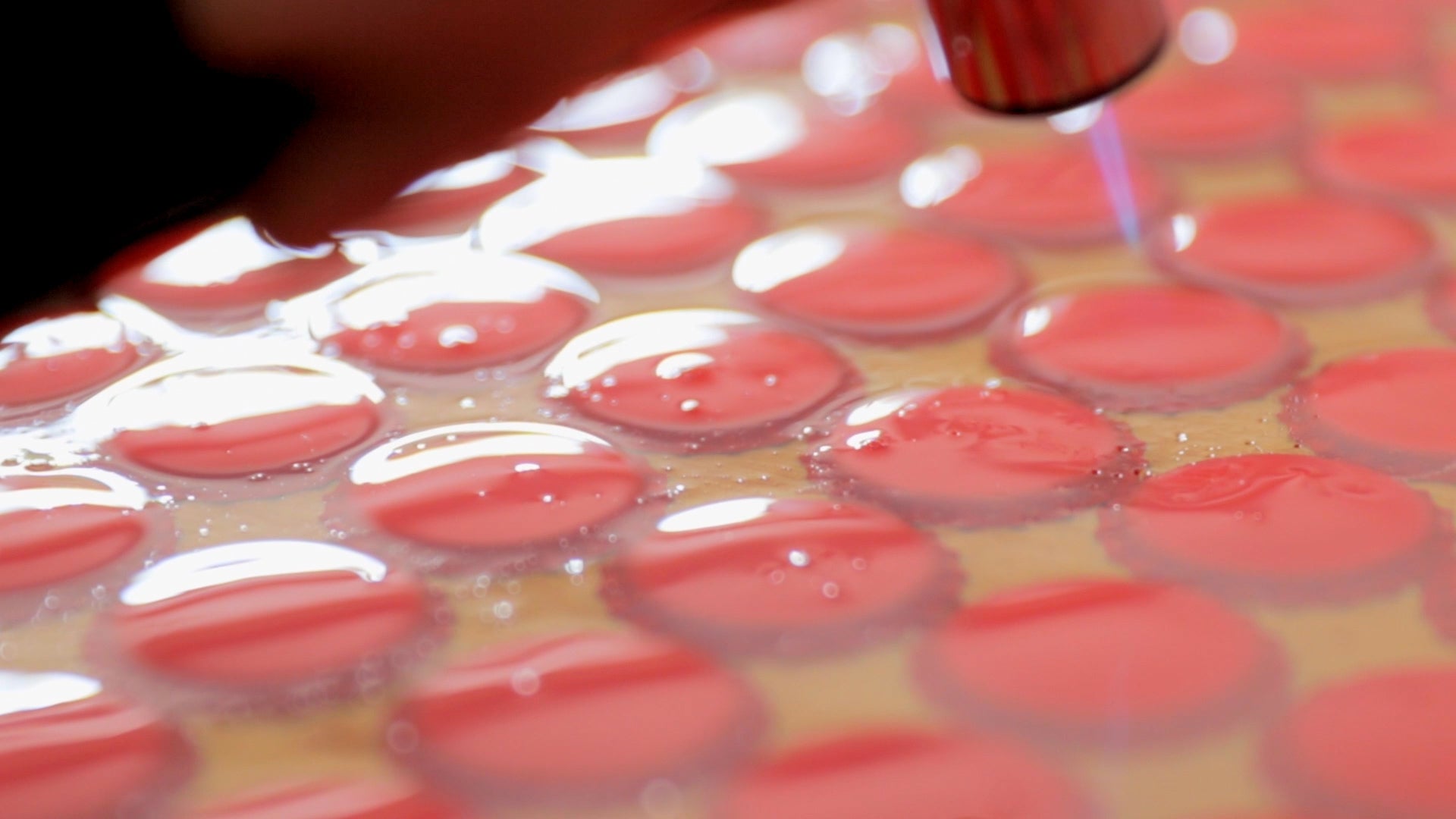
Why Are There Bubbles In My Resin?
Bubbles are a natural result of mixing resin and hardener. After pouring and spreading the resin over your piece, however, you may notice additional bubbles rising to the surface. This happens because ArtResin is formulated with a bubble release agent that encourages bubbles to rise, making it easier to remove them before the resin thickens and cures.
💡TIP: A torch is the most effective way to remove bubbles and achieve a flawless, crystal clear finish.
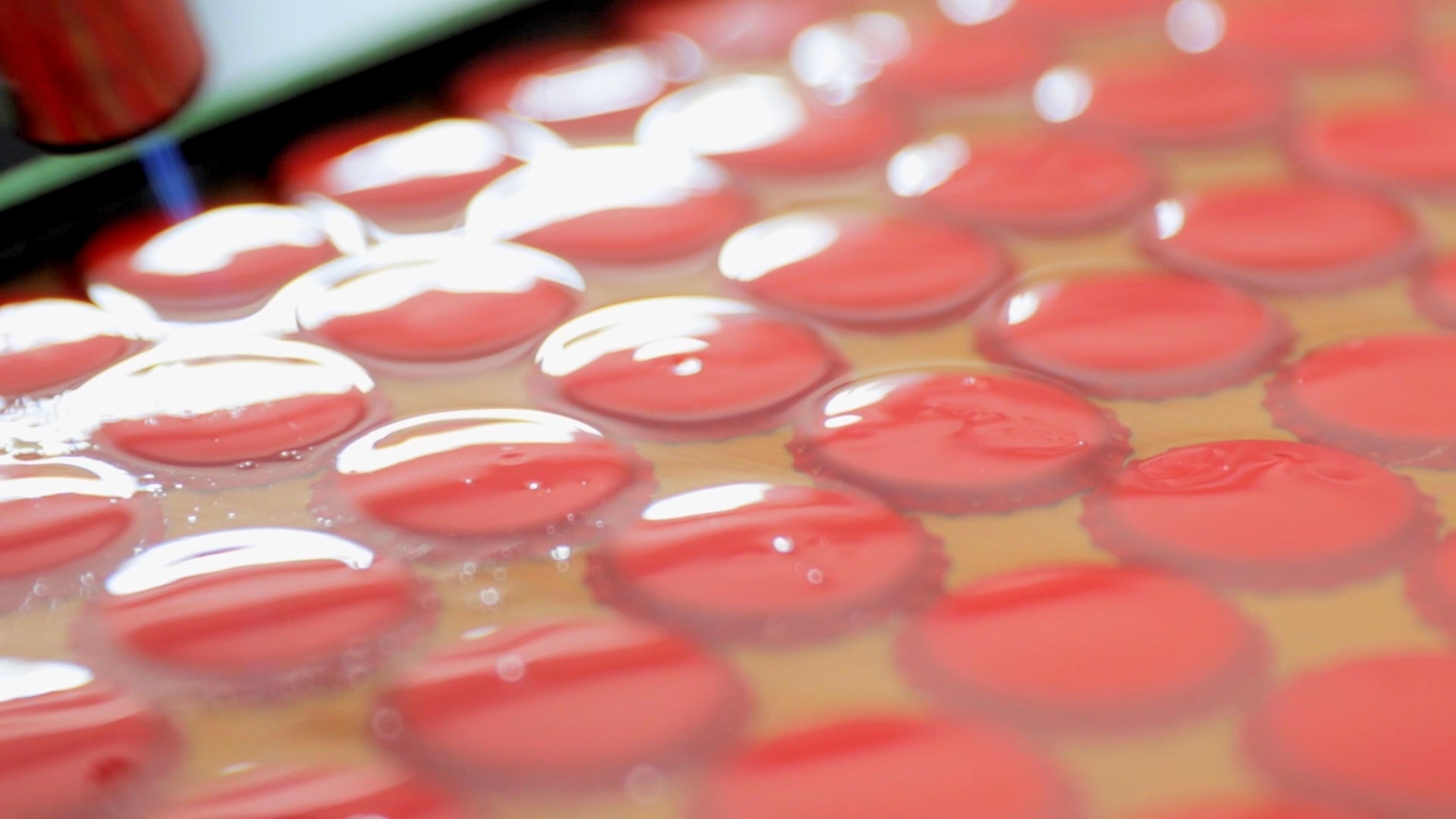
Here's Rebecca with more:
There are a few other reasons why bubbles may pop up. Here are the most common and some tips on how to prevent them:
1) Off-gassing
Porous, organic materials like wood, leaves, fabric, and even some soft papers can release air trapped within them, a process called off-gassing. These materials will continue to "breathe" ... releasing air even after being covered with liquid resin. This can lead to air bubbles forming in your resin, sometimes hours after you have poured and torched.
To prevent off-gassing, seal porous materials before applying resin:
- For paper, leaves, or fabric: Use a brush-on or spray sealant.
- For sturdier materials like wood: Apply a thin coat of ArtResin with gloved hands or use a brush-on sealant. (See our video How To Resin A Charcuterie Board for a step-by-step guide.)
Occasionally, a bubble may still appear. If this happens, simply sand the surface and apply another coat of resin for a flawless finish.
💡TIP: When using an organic material, like wood, sealing first will create a barrier to help prevent the off-gassing of air bubbles.
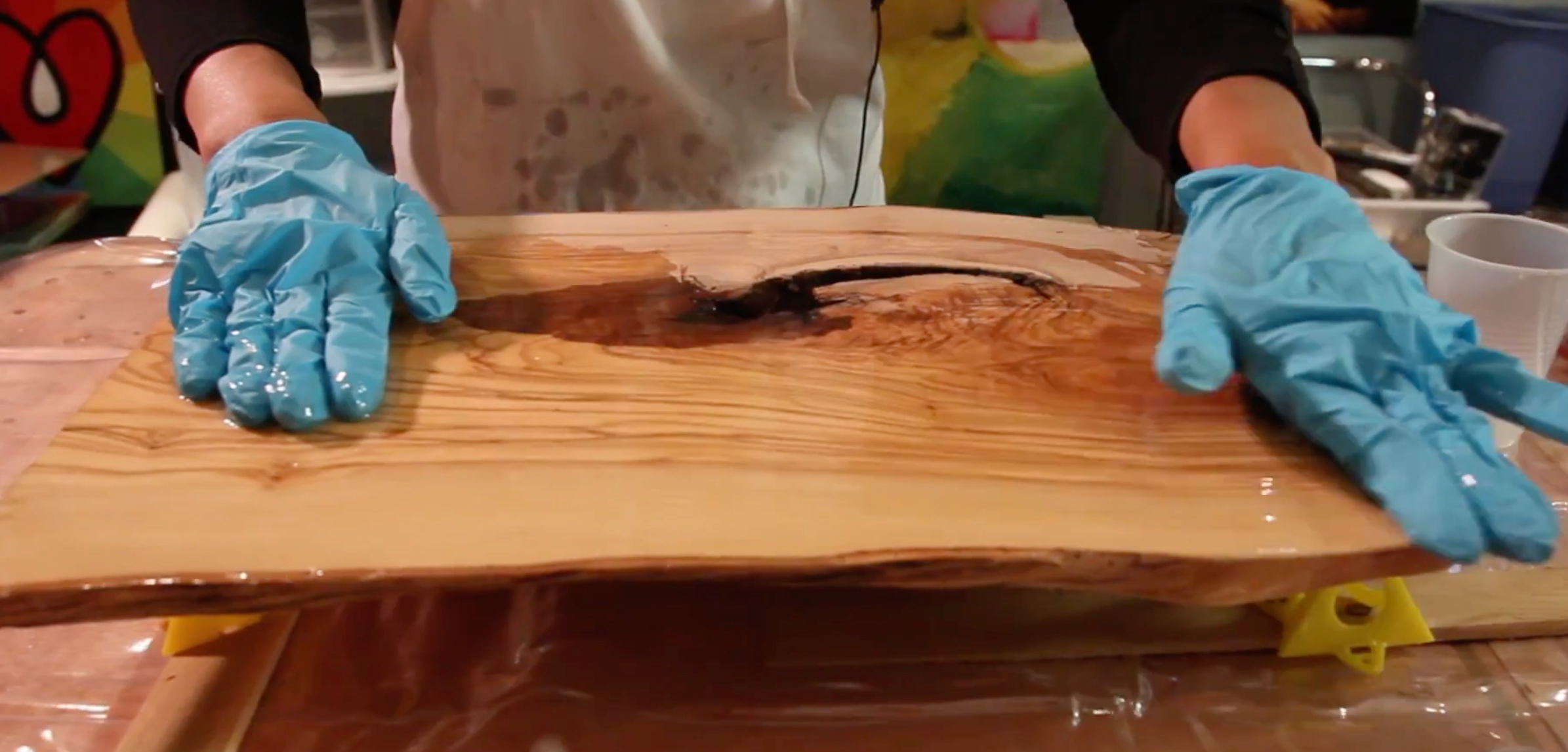
2) Air Pockets
When mounting paper, such as mounting a photo to a wooden panel or layering paper in a collage, you may find there is air trapped between the layers.
This can result in ... you guessed it - bubbles!
To prevent this, apply a high-quality adhesive evenly across the entire surface. Use enough adhesive, ensuring all areas are bonded and there are no gaps for air pockets to form. Depending on your project, you can:
- Apply spray on adhesive for quick application.
- Use a foam brush to apply PVA glue.
- Spread a thin layer of adhesive paste with a spreader.
💡TIP: Use a brayer to roll over the layers and press them firmly together. This helps eliminate air pockets and ensures a smooth, bubble-free surface.
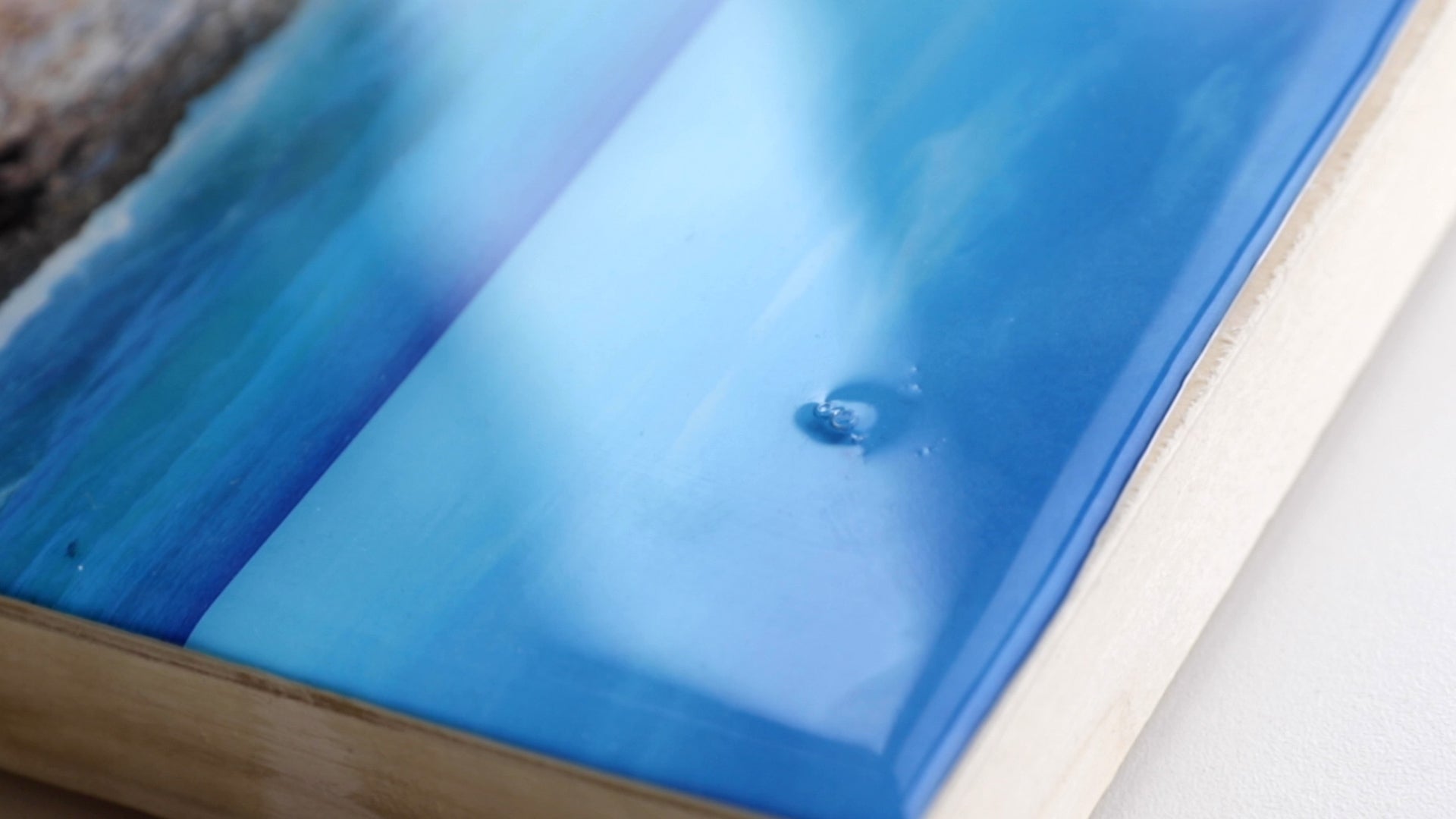
3) Cold temperatures
For optimal results, keep both your ArtResin and workspace at 75-85°F (24-30°C). At room temperature, resin is clear and smooth with a honey-like consistency, making it easy to work with.
If your resin gets too cold, it will thicken, become clumpy, and take on a cloudy, milky appearance. This happens due to thousands of tiny, cold-induced bubbles, which cannot be fully removed, even with a torch.
💡TIP: Always store your resin at room temperature before use. If it feels cold, warm the tightly capped bottles in a warm water bath for optimal consistency and to reduce bubbles.
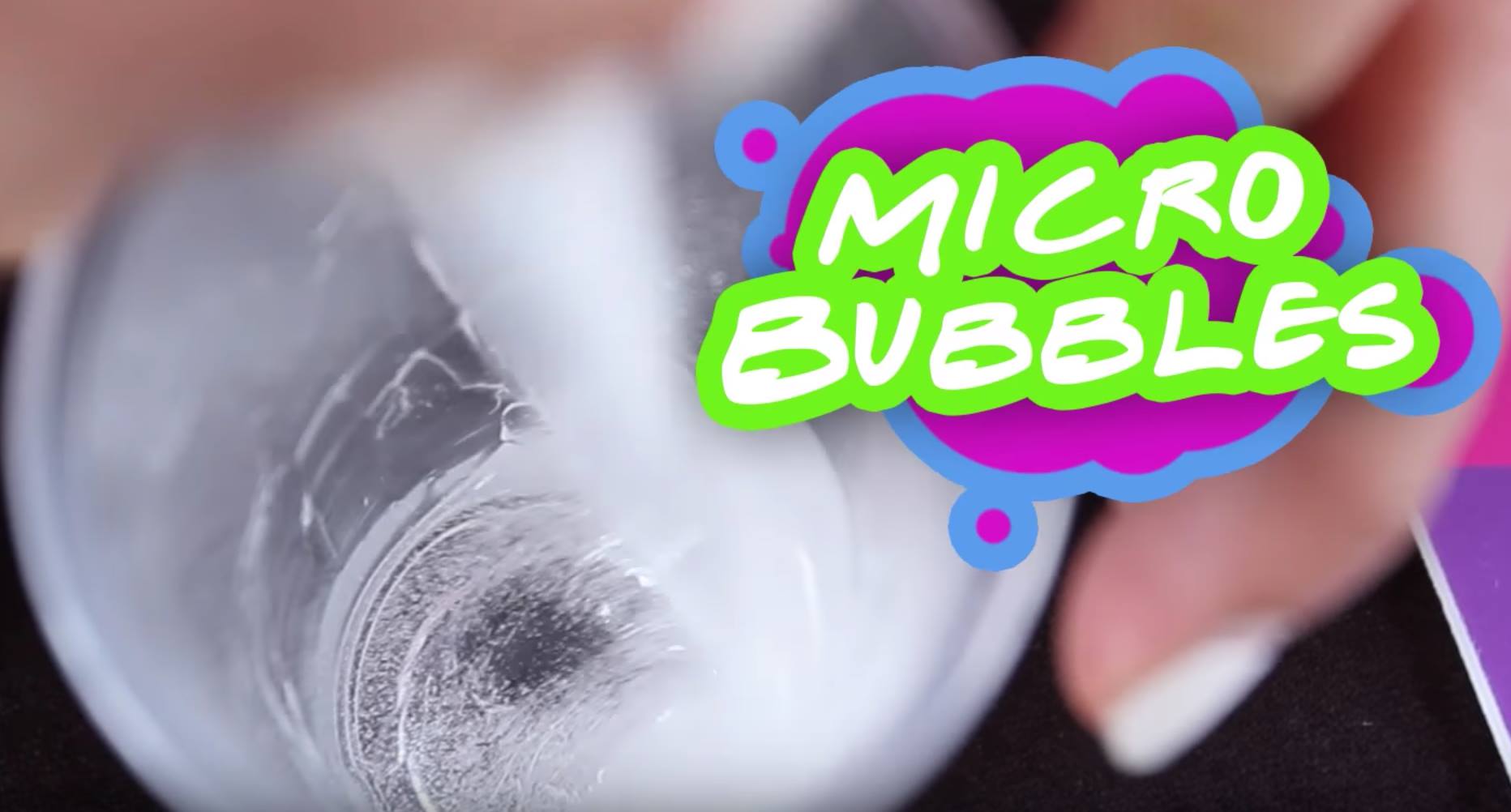
How To Fix Bubbles In Cured Resin
Thankfully, epoxy resin is forgiving, meaning that many problems (including bubbles) can be fixed with a simple sanding and re-pour.
Here's what you need to do:
1) Sand Out The Bubbles
Wear a mask to protect yourself from dust particles, and sand the entire surface of your piece with coarse sandpaper, such as 80 grit. Focus on removing the bubbles and creating a rough texture to help the fresh resin layer adhere properly.
After sanding, your piece may look scratched, but don't worry—when you apply a fresh layer of ArtResin, it will fill in the scratches, leaving your piece crystal clear again.
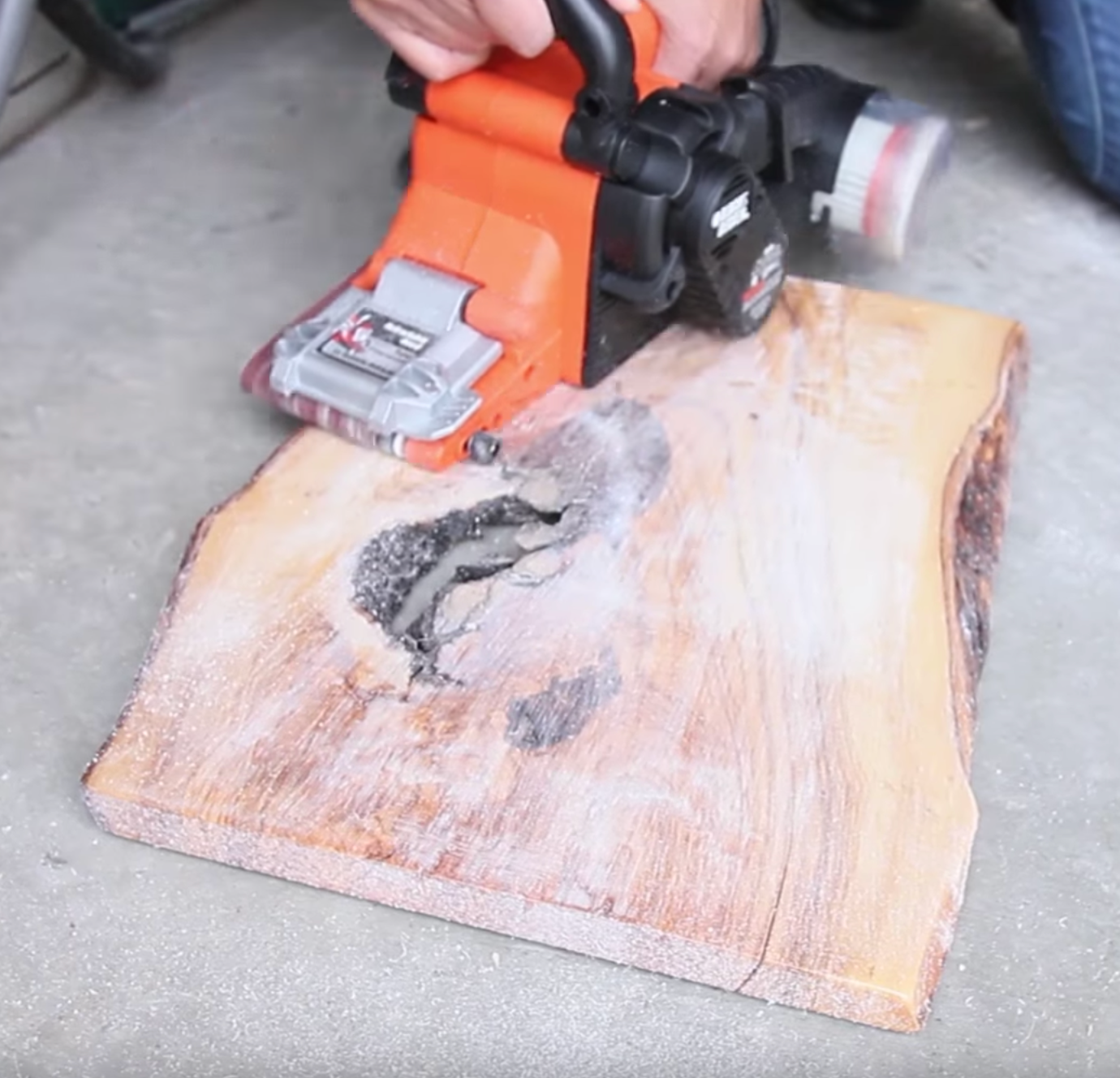
2) Wipe Away Sanding Residue
Use a damp paper towel to clean off all sanding dust. Wipe thoroughly until the surface is free of residue. If your piece has any nooks or crannies where dust might hide, a can of compressed air can help ensure a perfectly clean surface before you pour your fresh resin layer.
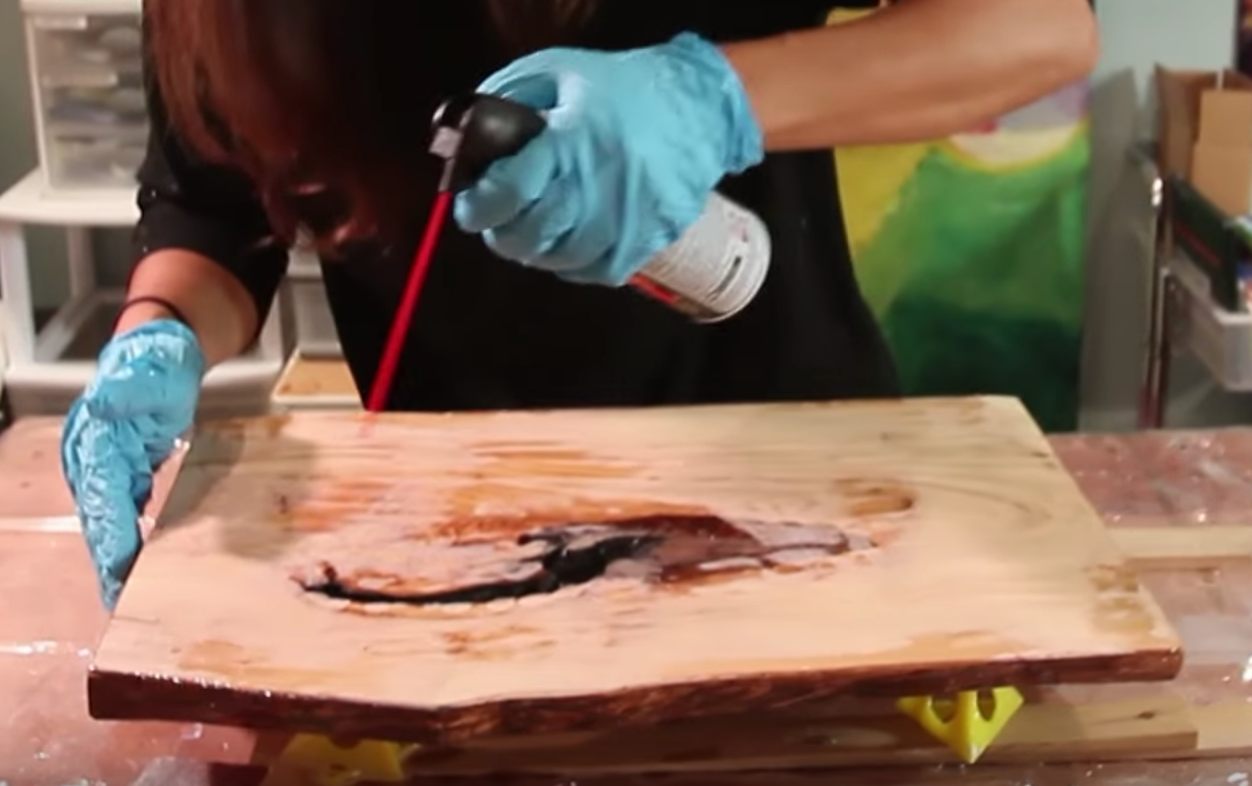
3) Pour A Fresh Batch Of Resin
Mix a fresh batch of ArtResin, making sure to carefully measure and thoroughly mix it as directed. Once mixed, apply a new coat of resin over your piece. Spread it evenly, use a torch to pop any bubbles, cover your piece, and allow it to cure. It will be touch-dry after 24 hours, and fully cured after 72 hours.
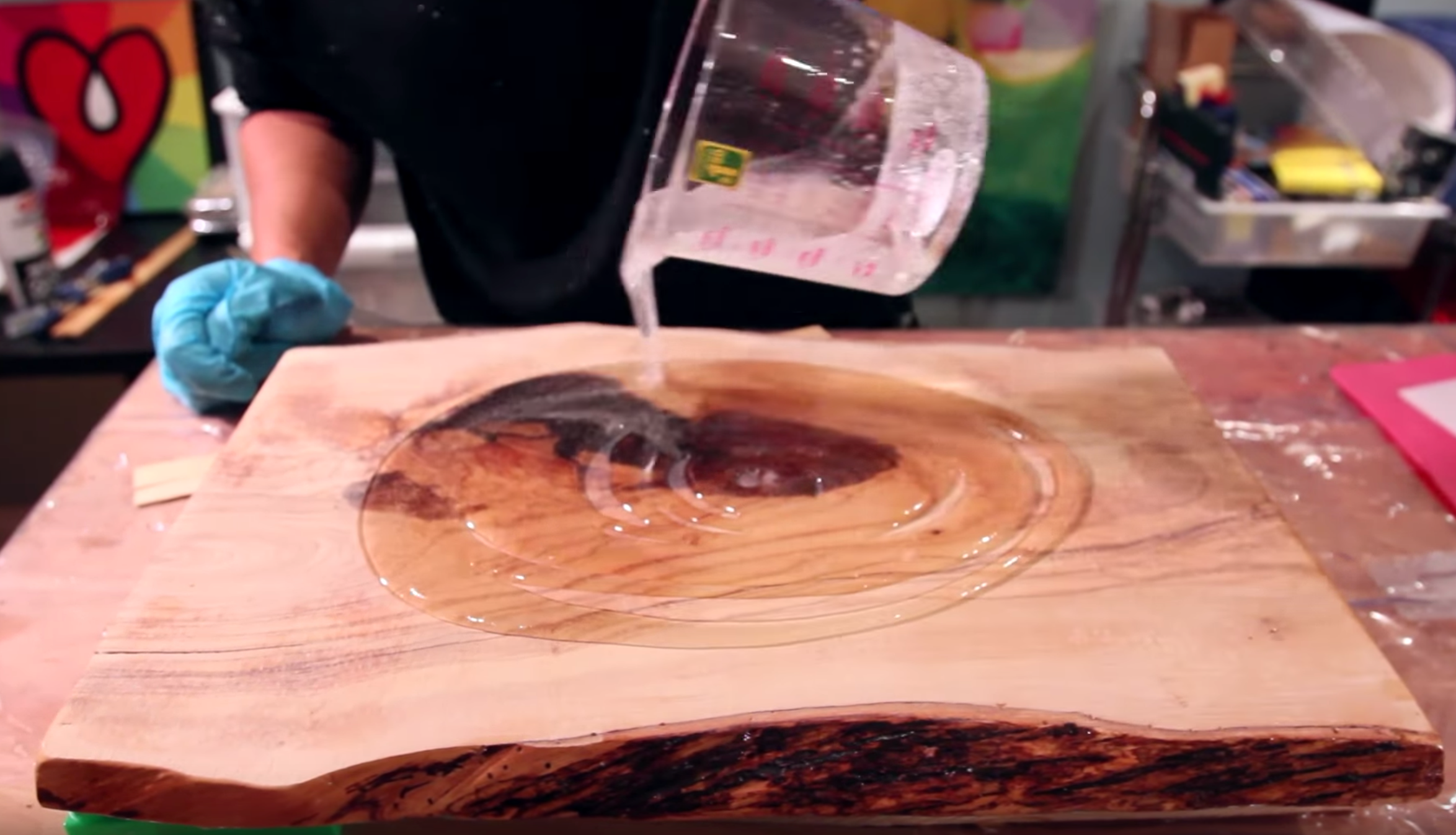
See?
No scratch marks - just a glossy, crystal clear ArtResin finish.
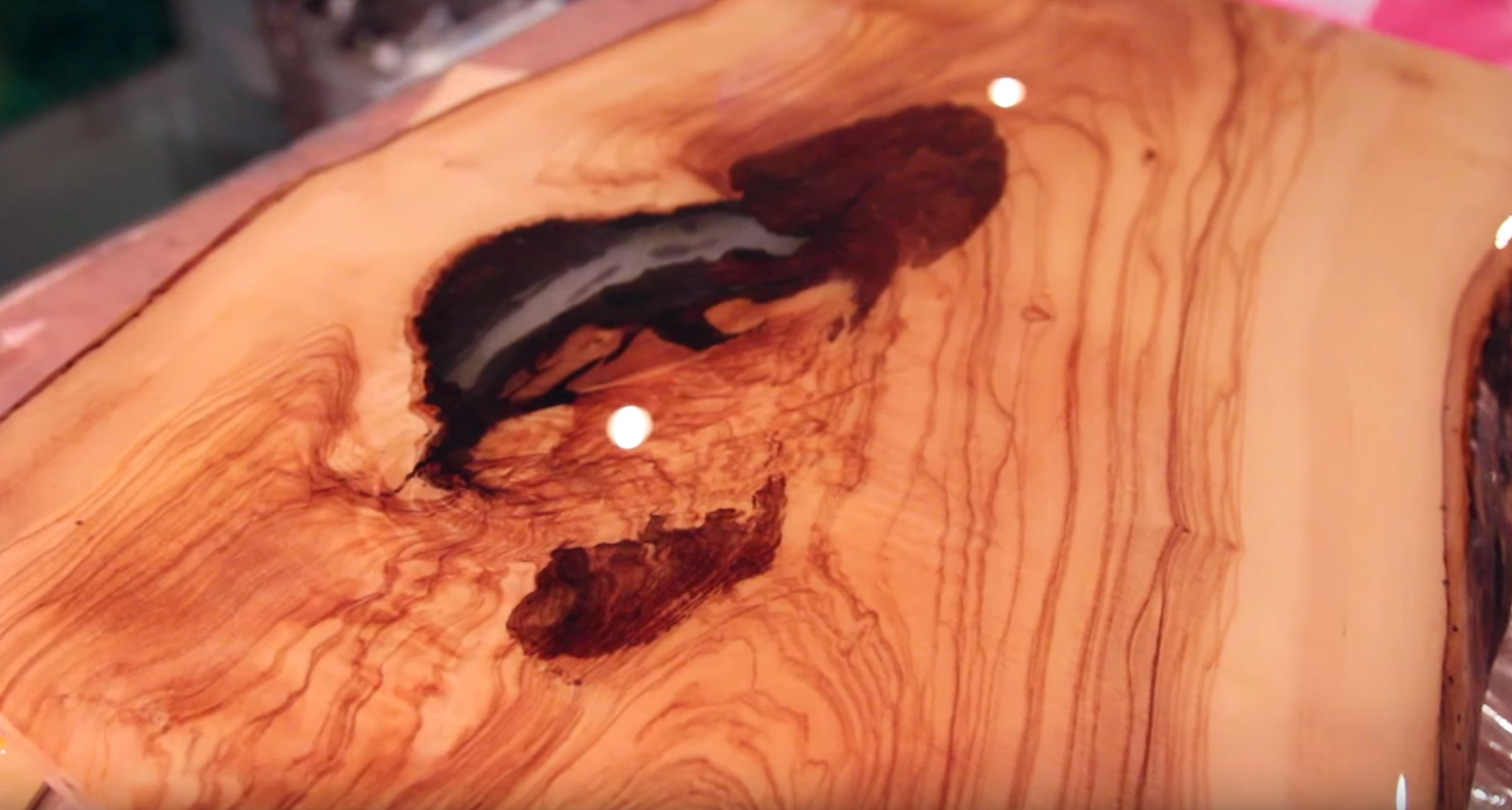
So remember:
Use room temperature ArtResin on your sealed piece to help prevent bubbles ... and if you already have pesky bubbles in your cured resin, follow our simple steps to get rid of them. Here's Joanne with a re-cap!
Please leave any questions or comments below!
Do you want to learn more about troubleshooting epoxy resin? Read our guides below:
- ArtResin’s Troubleshooting Guide
- Tips To Prevent Resin Bubbles
- Can I Fix Small Imperfections In My Resin?
- Is It Possible To Overstir My ArtResin?
- Is It Possible To Over Torch My ArtResin?
- Epoxy Resin Not Hardening
- How To Prevent Bendy Resin
- How To Fix Soft, Sticky Spots In My Resin?
- How Can I Avoid Getting Dimples In My Epoxy Resin?
- How Can I Protect Against Dust In My Epoxy Resin?
- How Can I Deal With Epoxy Resin Drips After They've Dried?
- What Happens If I Overtorch Resin?
- Why Does My Resin Look Cloudy?
- Why Is My Epoxy Resin Still Sticky?
- Why Are There Bare Spots In My Cured Resin?
- What Does Silicone Do To Resin?
ArtResin: The Original Epoxy For Resin Art.

